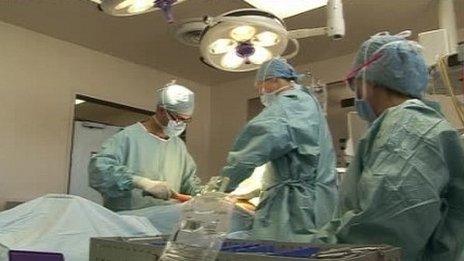Brexit: NHS 'may struggle' without more non-UK staff
- Published
- comments

Brexit threatens to make a crisis in health service recruitment worse, an assembly committee has been warned by a range of medical organisations.
The Welsh NHS Confederation said overseas recruitment was "significant" and should not be restricted.
The Royal College of Emergency Medicine warned that the falling value of the pound made the UK less attractive.
UK ministers said EU workers in the NHS "make a vital contribution and will continue to do so".
The assembly's health committee held a public consultation on the issue of NHS recruitment in 2016 and will take evidence, external from some of the interested parties involved on Thursday.
In their written submissions, they highlight an existing struggle to meet growing demand for health care in Wales while trying to replace experienced staff heading for retirement, with particular problems recruiting for posts outside the cities.
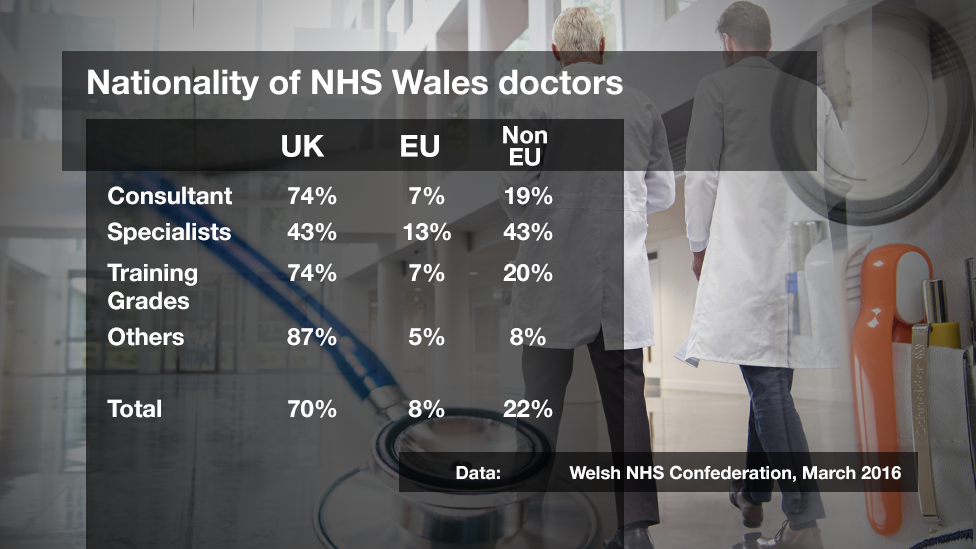
The Welsh NHS Confederation, which represents the health boards and trusts, called for long-term workforce planning to meet the nation's health and social care needs.
It warned that the NHS across the UK was "heavily reliant" on EU and other overseas workers.
Figures for March 2016 show 30% of NHS doctors in Wales came from abroad - 8% EU and 22% elsewhere.
In terms of where they qualified, the figures rise to around 35% coming from outside the UK.
The confederation claimed that following Brexit "some services may become unsustainable with the difficulties which health boards have recruiting potentially being compounded".
"Our reliance on EU workforce has increased in the last few years, probably due to tightening of UK immigration policy on non-EU workers," it said.
"The priority after Brexit should be to ensure that the UK can continue to recruit and retain much needed health and social care staff from the EU and beyond, while increasing the domestic supply, through robust workforce planning."
Dr Philip Kloer of Hywel Dda health board says Wales cannot train all the medics it needs
The Wales Deanery, responsible for medical training, warned of the challenges of trying to meet the needs of Welsh hospitals from home-grown recruits.
It said there was already a shortage of candidates willing to train in specialities such as general practice, psychiatry and emergency medicine.
But the deanery added that increasing the number of admissions to Welsh medical schools would increase the available workforce.
"This would appear to be an expensive strategy at the point of investment but it would reap rewards in the longer term," it said.
Currently, two-thirds of Welsh medical students stayed in Wales after qualifying, the deanery said, but Wales could suffer from a post-Brexit drive by the NHS in England to replace overseas doctors with UK citizens.
The deanery hoped that immigration rules would allow EU doctors to stay or come to the UK to work after Brexit.
"If we cannot recruit and retain EU doctors in Wales we will need to look to other parts of the world or train more Welsh domiciled students and encourage them to undertake their postgraduate training here in Wales with comprehensive incentive packages (financial and non-financial) to continue to work in Wales for a defined period of time," it said.
'Double the numbers'
The Royal College of Emergency Medicine in Wales focused on the lack of "senior and middle grade medical staff in A&E departments to deliver effective and efficient care alongside too little training places".
It estimated that growing demand meant Wales would need at least 100 emergency medicine consultants within the next six years.
But with around 15-20 of the current tally of 65 consultants due to retire, it warned that Welsh health boards will have to "at least double current consultant numbers to meet demand".
The college also pointed to the uncertainty over Brexit, and said the falling value of the pound was making UK salaries less attractive to doctors from overseas.
It said the UK was ranked 10th out of the 28 EU member states in terms of pay for consultants, who could earn 40% more by moving to New Zealand.
A spokesperson for UK ministers said: "This government has been clear, that we want to protect the status of EU nationals already living here and the only circumstances in which that wouldn't be possible is if British citizens' rights in European member states were not protected in return.
"EU workers in the NHS and social care sector make a vital contribution and will continue to do so.
"The government's priority is to reach a reciprocal arrangement on this at the earliest opportunity."
- Published17 November 2016

- Published20 October 2016
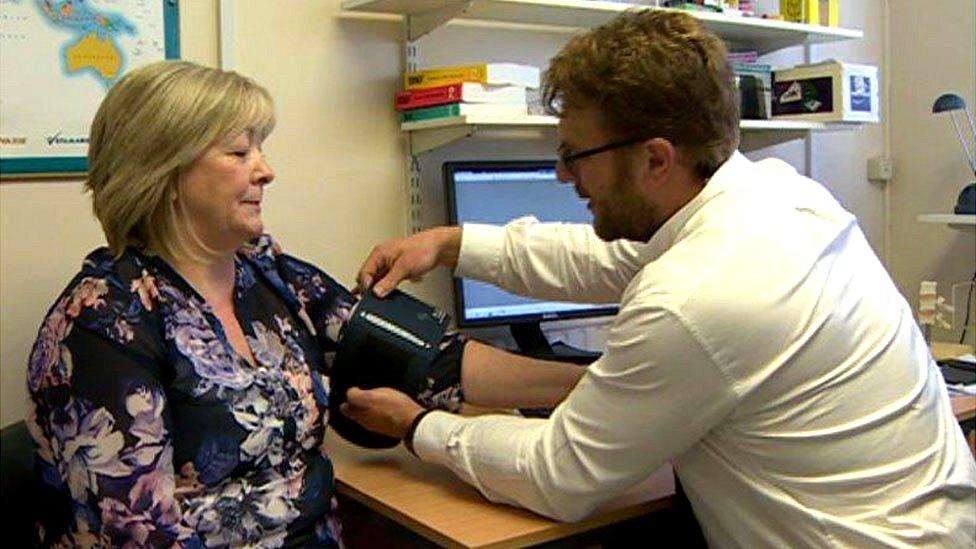
- Published22 September 2016
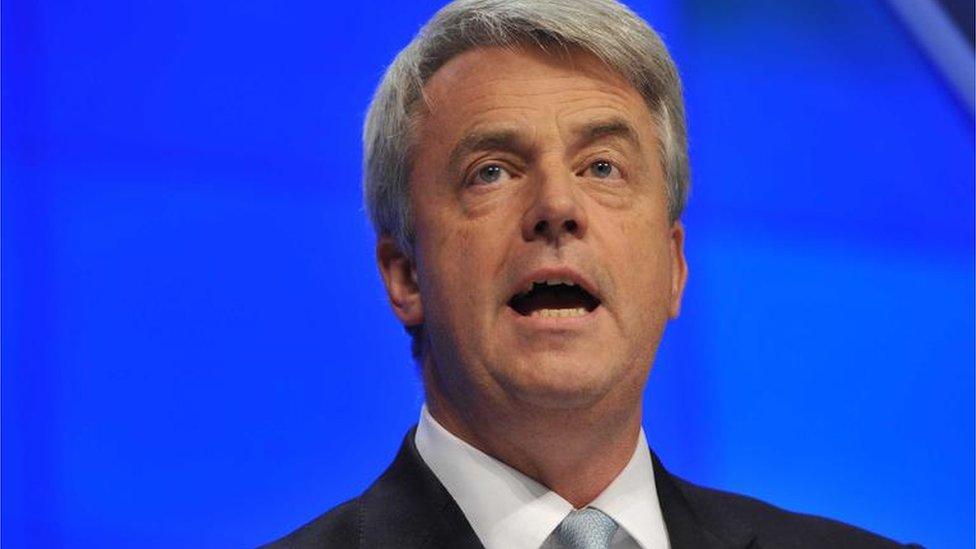
- Published12 September 2016
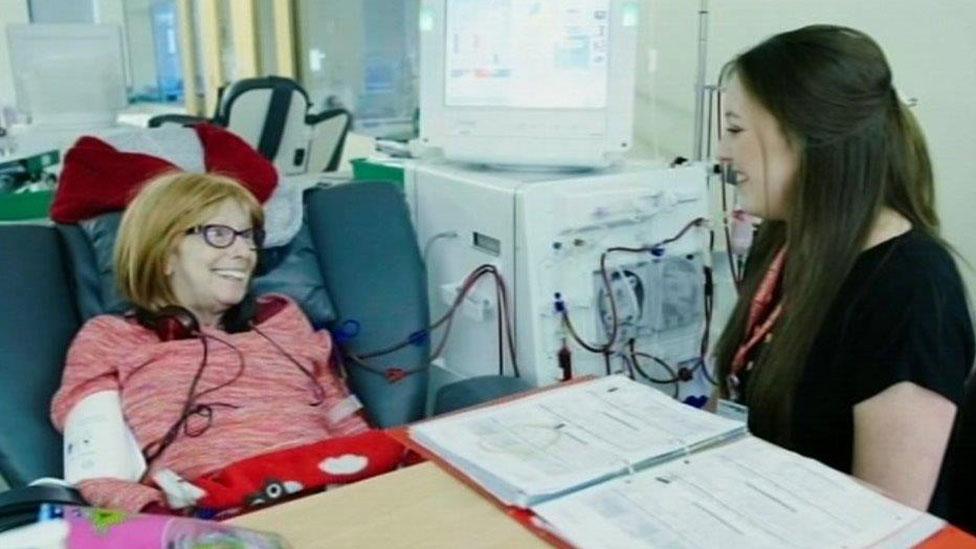
- Published30 June 2016
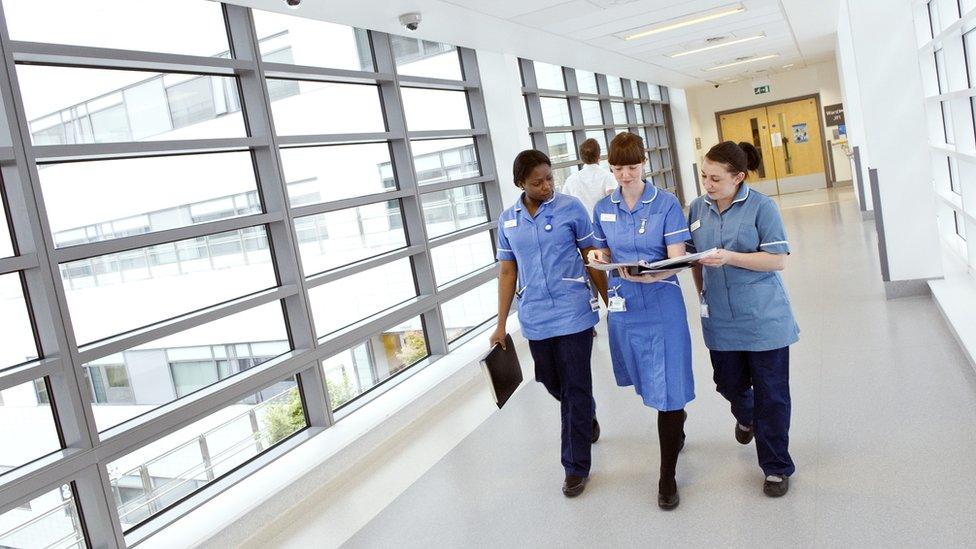
- Published30 January 2015
